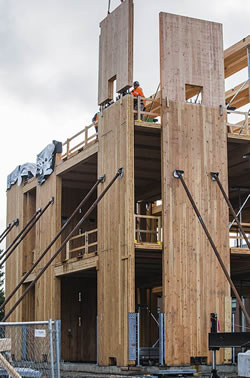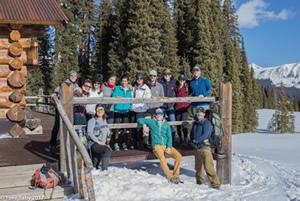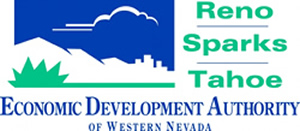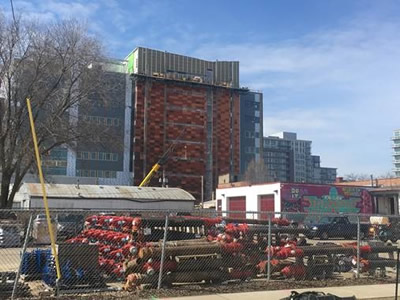Success Story: EDA’s Regional Innovation Strategies Program Working to Build and Scale High-tech, Innovative Businesses to Create Jobs and Strong Regional Economies
Launched in 2014, EDA’s Regional Innovation Strategies (RIS) Program is a national grant competition that has helped support and amplify the best organizations, practices, and resources local communities are using to help their entrepreneurs build and scale high-tech, innovative businesses in order to create new jobs and strong regional economies.
To date, EDA has awarded over $56 million to 142 projects across 42 states and 1 territory, but these Federal grants are just part of larger community support for entrepreneurs. Entrepreneurship is truly a contact sport, requiring teams of dedicated individuals to break through challenging barriers, and thus, the RIS program prides itself in the nearly $67 million in private and local matching funds that organizations and communities have committed to see these projects thrive.
EDA looks forward to launching the 2018 RIS competition in the near future.
In the meantime, here are some examples of what RIS grantees across the nation are doing to create economic opportunity and jobs through innovation and entrepreneurship:
Oregon State University and University of Oregon Team Up to Launch TallWood Design Institute, Advance Mass-Timber Technologies

A cross-laminated timber splice connection, tested at Oregon State University, installed at the George W. Peavy Science Center. Photography by Johanna Carson
EDA 2015 Regional Innovation Strategies (RIS) grantee Oregon State University (OSU) has partnered with the University of Oregon (UO) to launch the TallWood Design Institute (TDI), an innovative collaboration that brings together world-class expertise in wood science and technology, forestry, architecture and engineering to carry out applied research and support product development and testing of structural wood building materials and systems.
The results may revolutionize the advanced wood product supply chain and boost Oregon’s forest-dependent rural communities.
In the latest wave of product innovation to hit the wood products industry, a toolkit of new engineered wood products such as cross-laminated-timber has arrived to offer high-performance, sustainable alternatives to more energy-intensive materials like concrete and steel, driving a renaissance in the use of wood in larger non-residential and multi-family buildings. Dubbed “mass timber’, these products combine smaller wood elements into large panels, columns and beams that can be prefabricated using precision computer-controlled equipment, offering quick assembly at the construction site, improved quality, simplified jobsite logistics in addition to reduced waste and noise. Mass timber products require about one-fifth as much energy to produce as steel and one twenty-fourth that of concrete.
It is perhaps not surprising that the first certified manufacturer of cross-laminated-timber is located in Oregon, the nation’s leader in the production of lumber and plywood.
Mass timber offers a dual benefit to those living near the state’s expansive forestlands. As companies invest in mass timber manufacturing capacity – as recently done by DR Johnson, a family-owned lumber company located close to Oregon’s timber heartland of Roseburg – the demand for such innovative products may help bring high-skill jobs to Oregon’s rural communities.
To date, TDI is working with industry, building code officials, designers, engineers and municipal officials to address issues that currently can act as barriers to mass timber projects.
Some examples of the work already carried out include:
- OSU faculty worked with plywood manufacturer Freres Lumber Company to develop and test a brand-new category of mass timber product, now known as the Mass Plywood Panel. Using veneers instead of lumber, the product utilizes a higher proportion of each log and can achieve similar strength values with less mass than cross laminated timber. After working with OSU on two phases of testing, Freres opened a highly-automated $35 million greenfield manufacturing facility in rural Oregon which will create 40-50 new jobs.
- OSU researchers conducted structural and fire tests for elements of a new 12-story mass timber building which will begin construction in downtown Portland this year. The project, named “Framework”, is the winner of the 2015 USDA Tall Wood Design Competition, and will be the tallest wood building in the US.
- OSU and UO research teams are testing asphalt/timber combination systems which will form the driving surface of a mass timber parking structure, to be built by the City of Springfield, Oregon in 2019.
- An OSU engineering team is working with Corvallis nonprofit Cascadia Seismic Strategies to develop and test a mass-timber based seismic retrofit system that can be inexpensively installed in older unreinforced masonry buildings (URMs) without disrupting building occupants. Portland alone has 1,650 URMS that are vulnerable to earthquakes, and the system could have huge public safety impacts as well as representing a previously untapped market opportunity for mass timber producers.
Combined, the diverse activities being carried out through the University of Oregon in partnership with Oregon State University at the TallWood Design Institute are driving product demand, increasing manufacturing capacity and overcoming barriers to the use of mass timber products.
Telluride Venture Accelerator Raises $13 Million for Early Stage Ventures, Entrepreneurs in Rural Colorado
In just over a year, EDA Regional Innovation Strategies (RIS) grantees the Telluride Foundation and its Telluride Venture Accelerator have helped create an additional $13 million in capital for early stage ventures, specifically for companies located in rural and remote parts of Colorado. The additional capital raised complements their strategic effort to foster commercialization and entrepreneurship within the Southwest Innovation Corridor that connects new companies and entrepreneurs with diverse resources to maximize economic opportunity for the region. Telluride Angels and Telluride Venture Fund are two of the only early-stage investment funds in Colorado’s southwest region and have helped surface high, early stage investment demand.
Key accomplishments to date:
- Greater Colorado Venture Fund: Colorado State’s Venture Capital Authority released $9.1 million in funding for rural ventures. In early 2018, the Greater Colorado Venture Fund was awarded funds with support from key national players including the Foundry Group, Kauffman Foundation, Economic Innovation Group, Village Capital and Google for Entrepreneurs – all of whom believe this fund is taking an innovative new approach to funding startups in rural America with hopes that the model can be replicated across the country.
- Telluride Venture Fund: Raised third fund of $3 million, twice the amount of first two funds.
- Telluride Loan Fund: A critical need was found for product, manufacturing, and more traditional businesses where more traditional loans would best enable the growth, so the Telluride Foundation, together with First Southwest Bank and a national foundation created a $2 million loan fund that will step in to serve as debt capital for companies that would not otherwise yet be bankable.
- Telluride Regional Opportunity Zone Fund: With the passage of the Federal Opportunity Zone (OZ) Fund legislation in the new tax bill, the Telluride Foundation has been selected by Colorado Governor Hickenlooper for nomination to the Treasury to create a OZ Fund for four neighboring rural communities in southwest Colorado.
While access to capital has been a challenge for entrepreneurs in western Colorado in the past, Telluride is confident that it has created a new level of entrepreneurial activity and momentum that will lead to hundreds of additional investments in rural based ventures over the next 5 years. The result will lead to the creation of hundreds of new jobs and a new sense of hope and opportunity for entrepreneurs in the region.

“As a country we are at a unique tipping point where entrepreneurial ecosystems are emerging in small and large communities alike. In order to ensure everyone has the ability to participate in the future economy, we need to focus on fostering jobs and opportunity through entrepreneurship across small town America.”
~Marc Nager, Vice President of Innovation, The Telluride Foundation
Economic Development Authority of Western Nevada Launches Annual Seed Fund and Venture Conference to Bring Investors to Reno, Advance Startups in Region

2017 Regional Innovation Strategies grantee the Economic Development Authority of Western Nevada (EDAWN) has launched an annual seed fund and venture conference in Reno, Nevada to bring investors to the region and help provide early stage financing to the most promising local business startups in the area.
EDAWN, in collaboration with its university and community partners, is working with strategic partners from GTG Capital and Seven Peaks Ventures to create a framework to accomplish 3 high level objectives:
- Improve access to capital through the creation of new seed funds structured on best practices learned from other communities.
- Bring more high net worth individuals into the local seed capital ecosystem with specific emphasis on cultivating female and minority investors.
- Improve early stage deal flow and syndication amongst regional investors.
To date the team has:
- Engaged the support of Startup Angels and hosted a first of its kind startup investment workshop in April 2018. More than 30% of the participants are new women investors.
- Supported the creation of a $400K IOT focused accelerator pre-seed fund.
- Recruited six new individual angels who have already started investing.
- Established a reoccurring deal flow/deal syndication event which is scheduled to launch in May 2018.
The initial progress is encouraging and has demonstrated the regions capacity for supporting the local seed capital ecosystem. This is especially exciting given that historically many of the local investors and startups had to relocate to Silicon Valley to participate in a more mature venture capital environment. This increased investment activity is helping grow the Nevada entrepreneurship ecosystem so startups can now launch and receive the necessary capital to scale in their own region, and investors have enough deal-flow to stay local with their investments.
StartingBlock Madison to Open New Entrepreneurial Center June 2018

This June, 2016 i6 Challenge grantee, StartingBlock Madison, will open a new 50,000 square foot entrepreneurial hub in Madison, Wisconsin’s burgeoning Capital East tech district. Once open, StartingBlock will provide office space and support to 15-20 of Madison’s most innovative, scalable, growth startups and investors. The new facility became possible when the City of Madison, State of Wisconsin, UW-Madison and American Family Insurance came together to strategically leverage assets in the region.
StartingBlock’s mission is to help launch more startups by cultivating a diverse pool of entrepreneurial talent and connect human talent to high-growth entrepreneurial ventures. Madison is emerging as a national tech hub with significant growth potential, and its innovation ecosystem will help advance companies and entrepreneurs throughout Wisconsin.

StartingBlock will also bring together partner organizations which include:
- Nationally ranked gener8tor accelerator program whose companies have raised over $150M and now have programs in Wisconsin, Minnesota, Michigan and Ohio;
- The Doyenne Group, which launched their $1.2M Evergreen Fund for startups led by women and entrepreneurs of color this spring;
- The Wisconsin Games Alliance, which represents the region’s growing gaming cluster;
- Bunker Labs, which supports entrepreneurs with military backgrounds; and
- The Commons, which brings student entrepreneurs together to work on real-world innovation problems.
Other StartingBlock endeavors include:
- Partnering with UW-Madison, including its National Science Foundation I-Corps proposal, to provide talent and commercialization assistance; and the Madison Area Technical College to support early-stage entrepreneurship support programming and mentorship;
- Hiring Madison’s first “Startup Team Strategist” in August to assist growing startups as they seek to find, attract, hire and retain talent. To date, StartingBlock has filled three positions, assisted 18 companies and provided talent assistance to 83 individual entrepreneurs;
- Launching the Madwaukee Talks series, which strives to connect our region’s two largest and most important metropolitan cities: Madison and Milwaukee; and
- Mentoring and coaching over 100 startups and entrepreneurs in addition to sitting on steering committees or judging the Governor’s Business Plan Competition, the UW’s Transcend Student Business Competition, and the state-wide Force for Positive Change.
The momentum and enthusiasm is growing as June approaches. StartingBlock is an ambitious project for a mid-sized Midwestern city, but Madison has all the right ingredients – world-class research institutions, high quality of life, tech talent and deep, dense networks – to put Madison on the national map. StartingBlock is proud to partner with EDA to support entrepreneurs and startups in the region.
“ImageMover was looking for an opportunity to grow and found what it was looking for with StartingBlock. The Capital East tech district is positioned to cultivate a diverse pool of talent, and the collaborative space filled with other like-minded entrepreneurs will help foster innovation among our team.”
~Darcey Nett, president of ImageMoverMD
(future StartingBlock entrepreneurial hub facility tenant)








